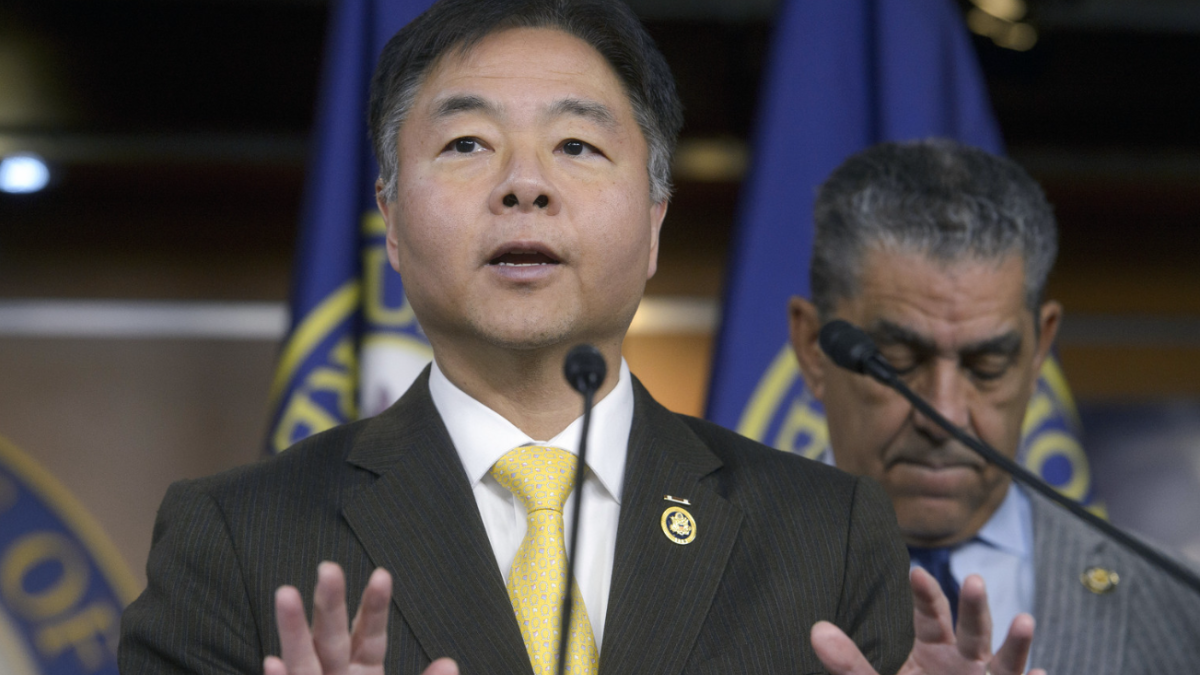A new push for AI rules from Washington

California Rep. Ted Lieu thinks regulating artificial intelligence is an area where Republicans and Democrats like him can work together.
“I hope that we’re going to be able to pass some AI legislation this term,” said Lieu, who with California Republican Rep. Jay Obernolte co-chaired the House Task Force on Artificial Intelligence last Congress, at The Hill’s Nation Summit in Washington on Wednesday.
State of play: The task force issued a report last year with more than 80 recommendations that focused on “demonstrable” harms of AI but took a conservative approach to passing new laws.
During the report’s development, many health care groups, including those representing doctors, medical device makers, technology developers, hospitals, health systems and insurers, told POLITICO they wanted the federal government to regulate AI — albeit with a light touch.
Although the task force hasn’t been renewed this Congress, Lieu is hopeful lawmakers can still make progress: “A number of those recommendations can easily become legislation,” he said.
When asked whether they could get the White House on board, Lieu pointed to Trump allies’ failed effort to freeze AI enforcement in the states and suggested they might not have a choice.
“What we’re facing now is not whether AI is going to have laws and regulations put on it,” Lieu said. “It’s do you want Congress to do it, or do you want 27 states to do it?”
What’s next: Lieu said the United States must move forward with building AI data centers, despite environmental groups’ concerns about the amount of energy and water they use. If we don’t, he warned, the U.S. won’t stay competitive globally.
But the U.S. should still build thoughtfully, he added, and focus on expanding renewable energy to meet the country’s rising needs.
“It’s not really a smart approach to say, ‘Don’t build these things because of energy,’” Lieu said, adding, “Then they’re going to be built in another country. I’d rather have them built in America.”
A fresh chapter for Playbook—powered by bold reporting and unrivaled access. Jack Blanchard leads with clear-eyed analysis on Trump’s second term. Dasha Burns brings exclusive White House scoops as one of the most sourced Trump reporters in D.C. Adam Wren writes the must-read political storytelling every weekend. Sign up now to read what Washington’s power players use to drive their day.
This is where we explore the ideas and innovators shaping health care.
A scholar of meditation at Harvard is warning that, while mostly positive, meditation can lead to suffering in some. He’s calling for more research to better understand why that’s the case.
WORLD VIEW
Global health aid funding has dropped significantly to $38.4 billion, matching levels last seen in 2009. | Getty Images
Global health funding has dropped this year to 2009 levels, threatening decades of progress against infectious diseases globally, the Seattle-based Institute for Health Metrics and Evaluation warns in a new report.
How so: IHME estimates that cuts in U.S. health funding for low-income countries this year, coupled with reductions from other major donor countries such as the U.K., will put total foreign-aid funding for health at $38.4 billion, where it was in 2009.
This represents a sharp decline from 2021, when global health funding reached $80.3 billion during the Covid-19 pandemic.
IHME estimates the U.S. government reduced its global health funding by 67 percent this year, which accounts for more than $9 billion.
The institute’s preliminary estimates suggest that the Gates Foundation has, for the first time, surpassed the U.S. government as the largest source of funding for development assistance for health.
But the total global health funding is expected to continue declining and is estimated to reach $36.2 billion in 2030, according to the IHME report.
Why it matters: This funding drop could have profound consequences, IHME warns. “It is likely that people are losing access to lifesaving health care services,” the report notes.
Mitigating the impact of the funding cuts hinges on beneficiary countries’ ability to mobilize their own domestic resources. But that varies widely, which will see some countries facing cuts in health services or needing to improve their health system’s efficiency.
One such example is Zambia, which is digitizing its health system to serve more people and improve their access to medicines, particularly in rural areas, the report notes